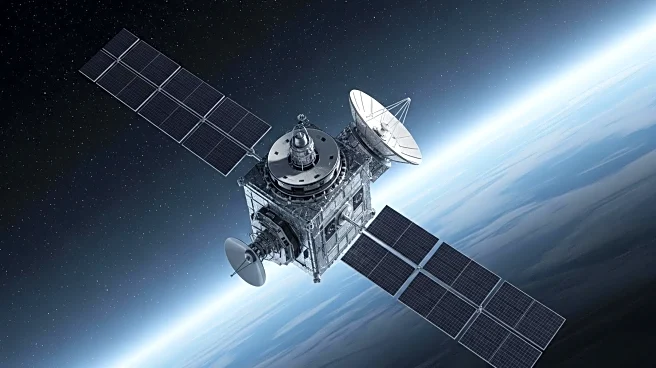What's Happening?
The EU Space Act, currently in its draft form, aims to streamline administrative processes for space businesses operating within the European Union. However, during a recent webinar hosted by Payload Europe, industry experts expressed concerns that the act might inadvertently impose excessive regulatory burdens, potentially hindering growth in the space sector. The act, released by the European Commission in June, is undergoing public review and drafting, with implementation expected to take several years. Panelists, including Sara Dalledonne from the European Space Policy Institute and Mark Boggett from Seraphim, highlighted issues such as compliance overload and additional costs for companies, particularly newer ones. The act's interaction with existing national laws remains unclear, raising questions about its impact on international operations.
Why It's Important?
The EU Space Act's implications are significant for the global space industry, particularly for U.S. companies with operations or partnerships in Europe. The potential for increased regulatory costs and compliance challenges could affect competitiveness and innovation. Companies may seek to establish operations in countries with less stringent regulations, impacting the EU's position as a hub for space activities. The act's development reflects broader trends in space governance, where balancing regulation with industry growth is crucial. For U.S. stakeholders, understanding these dynamics is essential for strategic planning and maintaining a competitive edge in the international space market.
What's Next?
As the EU Space Act progresses through its review and drafting stages, stakeholders will closely monitor its final form and implementation timeline. Industry feedback will likely influence revisions, aiming to balance regulatory clarity with growth facilitation. Companies may need to adapt their strategies, considering potential shifts in operational bases to more favorable jurisdictions. The act's evolution will be pivotal in shaping the regulatory landscape for space activities in Europe, with implications for international collaborations and market dynamics.
Beyond the Headlines
The EU Space Act highlights the complex interplay between regulation and industry growth, raising ethical and legal questions about governance in emerging sectors. The act's development may set precedents for other regions, influencing global standards in space regulation. Long-term, the act could drive innovation in compliance technologies and strategies, as companies seek efficient ways to navigate regulatory landscapes. The broader cultural impact includes fostering dialogue on the role of regulation in supporting sustainable industry growth.









